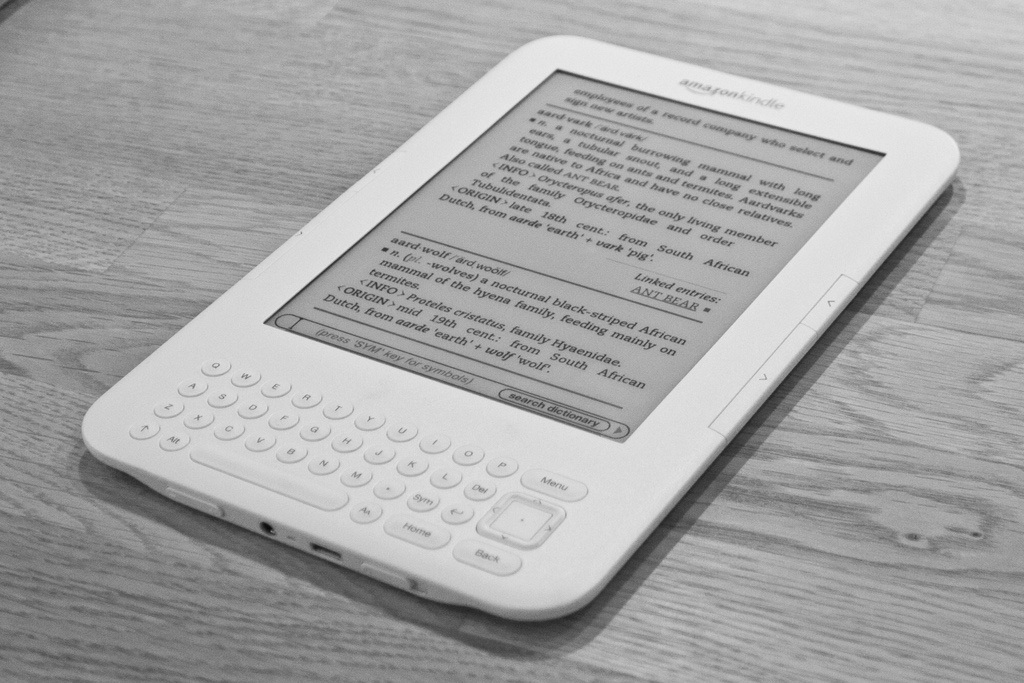Do you see your Kindle replacing your Chemistry textbook?
By Sophie Isbister, Life & Style Editor
Last semester I had my first class with electronic essay submission. The process was simple: the essay was due in my instructor’s email inbox a half hour before the class in which it was due, and he would send a confirmation email upon receipt of the file. Then the essays would be returned, with an abundance of comments typed onto them. This paperless method has its benefits, including the fact that a class of 30 students can save upwards of 500 pages of paper by removing it from the equation. There are virtually no drawbacks to this system, which is why more and more teachers are implementing it.
But will e-readers in the classroom find the same level of support?
My personal opinion is split. There’s no denying that they could be the future of the classroom, but what about the feel of paper in your hands? What about the ability to handily refer back to a previous page (for example, reference material that may be found at the beginning of a textbook chapter)? What about the formatting of the various tables, images, and sidebars found in modern textbooks?
Douglas College English student Bernadette McLaughlin is an unabashed supporter of e-readers for her college experience. She cites their light weight and ability to store multiple texts as the chief factor in her preference of ebooks, but admits there are a few problems, namely in terms of highlighting and resale ability.
She says, “My experience with digital textbooks has been mainly positive but there is a clear difference in the development of the format between novels and textbooks. Novels have a consistent format and for the most part can be read on a variety of devices, but the textbook formats I have had access to have been all over the map.”
McLaughlin adds that textbook publishers have a better selection of ebooks than retailers like Amazon, but she says, “For the most part [they] will only allow you to read them on the website through a computer browser with Internet connection, which is impractical and hard on the eyes.”
“I do most of my reading for school in a mobile format which means that I need to be Internet-free,” she adds.
John Maxwell Rodger, who is in Douglas’ Sign Language Interpretation program, is using his first e-textbook this semester. He tells us that choosing the ebook option saved him $100 this semester, and adds, “It’s easier to use than a physical book. It’s neatly organized into the chapter sections, and the homework is attached to the same module.”
Brittney MacDonald, an Associate of Arts student with an English focus, also likes her ebook: “I find it incredibly helpful when trying to study because it’s easier to look up important quotes or points,” she says.
“The only downside for me is [that] not everything is available on it. I wish it had more textbooks available through Amazon,” she adds, echoing McLaughlin’s complaints.
MacDonald adds: “[Ebooks have] also saved me a crap-ton of shelf space when it comes to comic books,” furthering the claim that ebooks are great for personal reading.
I have enjoyed my Kobo Touch for novels, which works for school since I am a literature student and the bulk of my course reading is in novel format. It stores more books than I can read in a year, and a number of classics are available for free on sites like Project Gutenberg (gutenberg.ca), which could come in handy for those 18th century literature classes.
But when it comes to e-readers for textbooks, I have to agree with McLaughlin’s statement: “For digital textbooks to become the wave of the future, publishers need to put more resources into expanding the format.” Maybe we will see a future where the first step of college involves purchasing a Kindle, but until publishers fix issues of access and usability, books aren’t going anywhere.


